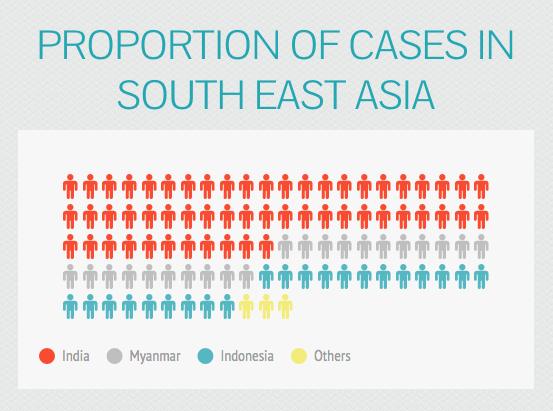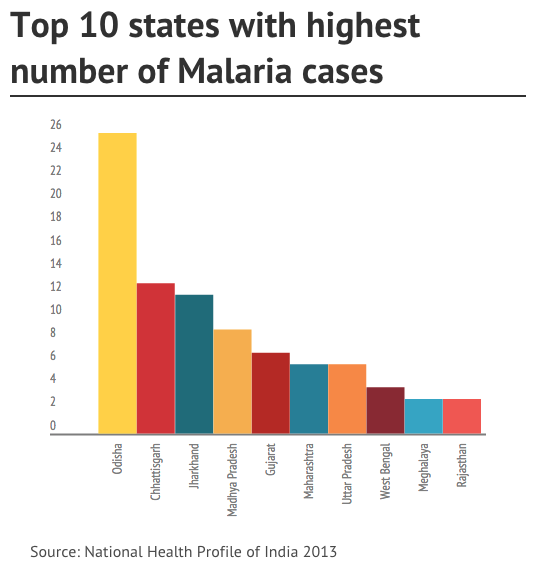|
90% of malarial deaths happen in rural India
By Makarand Purohit The economic burden of malaria in India is $1940 million -- lost earnings make up 75 percent while treatment costs make up the rest -- despite the GoI spending $51.33 million towards it in 2013. Stagnant puddles, which are a breeding ground for mosquitoes, follow the rains every year causing an increase in the incidence of water-borne diseases. Malaria is the third most common of these diseases in India after diarrhoea and typhoid. In 2014, the number of malaria cases in the country rose to 1070513, up from 8,81,730 in 2013. 35 countries, India being one of them, contributes to 96% of the total malaria cases and 98% of the total malaria deaths in the world. India is also one of the three countries that accounts for 97% of the malaria cases in South East Asia.
Malaria in urban India The maximum number of malaria cases in Indian cities are reported from Ahmedabad, Chennai, Kolkata, Mumbai, Vadodara, Vishakapatnam, Vijayawada and Pune thanks to increasing urbanisation, industrialisation, and construction projects. According to the Annual Report of the Ministry of Health and Family Welfare 2013-14, the Urban Malaria Scheme is currently being implemented in 131 towns of 19 States and Union Territories covering 130 million people but is it enough?  |
Controversy over Malaria data A 2010 Lancet study stated that more than 2 lac Indians die of malaria every year. This generated a lot of controversy as the National Vector Borne Disease Control Programme had reported only 9,778 deaths due to malaria in the last decade.The same study also found that 90 percent of deaths occurred in rural areas, of which 86 percent occurred at home without any medical attention. According to the World Malaria Report 2014,22% (275.5m) of India's population live in high transmission (> 1 case per 1000 population) areas.In 2013, Maharashtra and Odisha reported the highest number of deaths due to malaria but the highest number of registered malaria cases were reported in Odisha (2 lac) followed by Chhattisgarh (1 lac) and Jharkhand (97,215) cases.  |
Under the National Health Mission, Community Health Workers (ASHA) were provided with drug kits in which medicines related to malaria were also supplied. The Empowered Procurement Wing (EPW) has procured anti-malarial drugs of Rs.146 crore but due to long government systemic processes, the drugs do not reach the community health workers on time especially in remote villages. "In the last three years, the government malarial drug supply has not improved much. The availability of drugs to the community health workers needs to be regularized", says Pooran Singh, Regional Coordinator Bastar division, State Health Resource Centre, Chhattisgarh. Malarial eradication needs a fresh approach. The dependence on a large chunk of international funding alone is not a sustainable solution to control and eliminate malaria in India.
|

